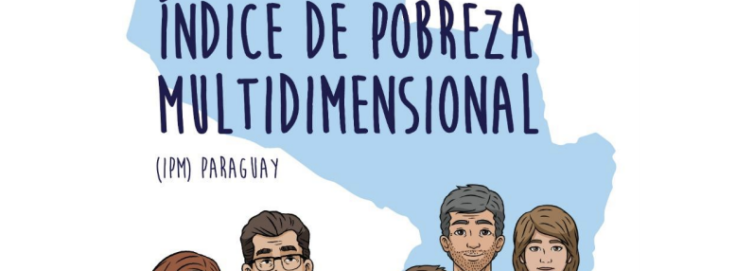
Search
Paraguay launches a national MPI to leave no one behind

16 June 2021 – Last week, Paraguay launched an official national Multidimensional Poverty Index (MPI) to help guide its poverty reduction policies. According to the Paraguayan MPI, in 2020, 24.9% of the population were living in multidimensional poverty.
Latin America is the leading world region for MPI adoption, and Paraguay joins the nine countries who have introduced multidimensional poverty measures.
While Paraguay has been measuring monetary poverty for 24 years, it began working on including multidimensional measurement to ‘complement monetary poverty measures to help the State identify deprivations that must be addressed to reduce poverty, and to design and monitor public policies with a rights approach’.
The Paraguayan MPI is based on the same survey used for measuring monetary poverty, the Permanent Survey of Households, ‘la Encuesta Permanente de Hogares (EPH)’, which is updated regularly. The report of the MPI uses data from the fourth quarter of each year from 2017 to 2020 to scrutinize poverty levels and trends.
The MPI uses 15 weighted indicators grouped under four dimensions ‘Employment and social security’, ‘Housing and public services’, ‘Health and environment’, and ‘Education’. If a household is deprived in 26% of these weighted indicators, they are considered multidimensionally poor.
Nationally, the incidence, or proportion of the population living in multidimensional poverty in Paraguay has been decreasing. In 2016, the incidence was 34.3%, falling to 24.9% in 2020. Among the multidimensionally poor population, the intensity of poverty, or average share of deprivations experienced in 2020, was 37.7.%. The report also found that in 2020 the incidence of multidimensional poverty is higher in rural areas (44.6%) than in urban areas (13.3%).
A comparison of monetary and multidimensional poverty in Paraguay finds that just under half of multidimensionally poor people in Paraguay are not monetarily poor, meaning they are at risk of being left behind without multidimensional measures.
The National Statistics Institute (INE) of Paraguay led the process of designing the national MPI, convening the Technical Interinstitutional Committee on Poverty, an expert committee with the participation of representatives from public, private and NGO organisations, including representatives from BID, CEPAL, the World Bank, UNICEF, UNDP, and OPHI. This expert/technical committee supported and advised the whole process of designing the MPI to fit the Paraguayan context.
More information from INE Paraguay (in Spanish)
Presentation from the launch event, 9 June 2021
















